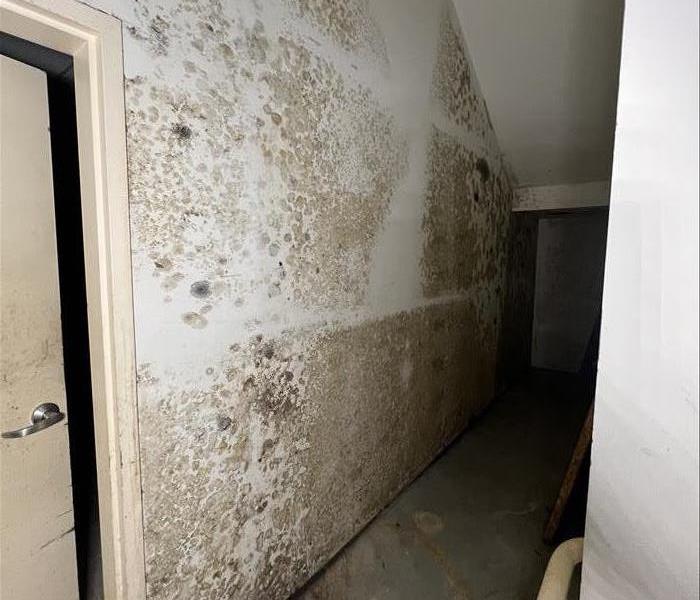How to Prevent Mold Growth After a Fire
12/11/2024 (Permalink)
 With the amount of water used to put out the fire, your home can become the perfect environment for mold to grow.
With the amount of water used to put out the fire, your home can become the perfect environment for mold to grow.
After a house fire, most people focus on cleaning up damage from the smoke and flames. But there's another issue that can sneak up on homeowners: mold. With the amount of water used to put out the fire, your home can become the perfect environment for mold to grow. SERVPRO of Arlington/Jacksonville East is Here to Help® with some easy tips you can follow.
Why Mold Is a Problem After a Fire
While fire damage is obvious, water can cause its own set of problems. Once a fire is extinguished, standing water or lingering moisture can result in mold growth, causing more damage if not addressed quickly. There is a short window to act fast. Water mixed with the organic materials in your home, like wood and drywall, creates the perfect breeding ground for mold.
Tips to Stop Mold After a Fire
1. Move Fast
Time is important when it comes to preventing mold. Start drying out your home as soon as possible. The longer water sits, the greater the chance mold will appear.
- Get Air Flowing
Good airflow helps to get rid of moisture. Open windows and doors to let fresh air in and use fans to keep air moving. If your HVAC system is working, set it to a dry or cool setting to help remove moisture from the air.
3. Remove Soaked Materials
Wet items like carpets, drywall, and insulation hold moisture, which is where mold thrives. It’s important to take out these materials as soon as possible.
4. Call in the Pros for Water Extraction
Professionals like SERVPRO® use heavy-duty equipment to get rid of water fast. We have special tools like industrial air movers, dehumidifiers, and moisture meters to make sure your home is fully dried out. This helps prevent water from hiding in places like under your floors or inside your walls.
5. Apply Anti-Microbial Treatments
Once your home is dry, adding an anti-microbial treatment can stop mold before it starts. SERVPRO uses treatments that target mold spores and prevent them from growing.
6. Watch the Humidity Levels
Even after drying out your home, you need to keep an eye on the humidity. Mold usually grows when humidity levels rise above 60%. You can use a simple device like a hygrometer to measure the humidity in your home. If the levels are high, consider running a dehumidifier in the affected areas.
Preventing mold after a fire is a race against time, but you don’t have to do it alone. SERVPRO of Arlington/Jacksonville East has the tools and experience needed to handle fire damage and stop mold from growing. We’ll help dry out your home, protect your property, and keep mold from causing more problems down the road.






 24/7 Emergency Service
24/7 Emergency Service